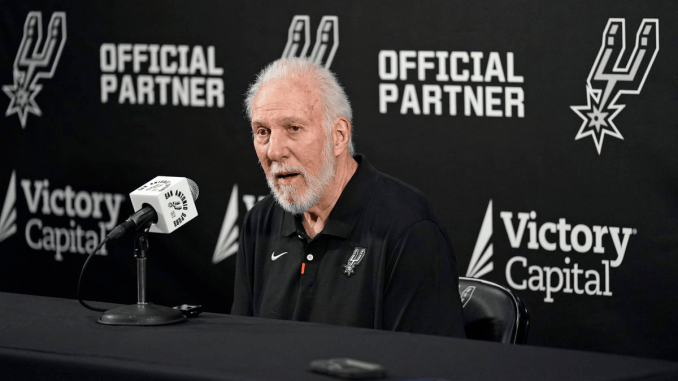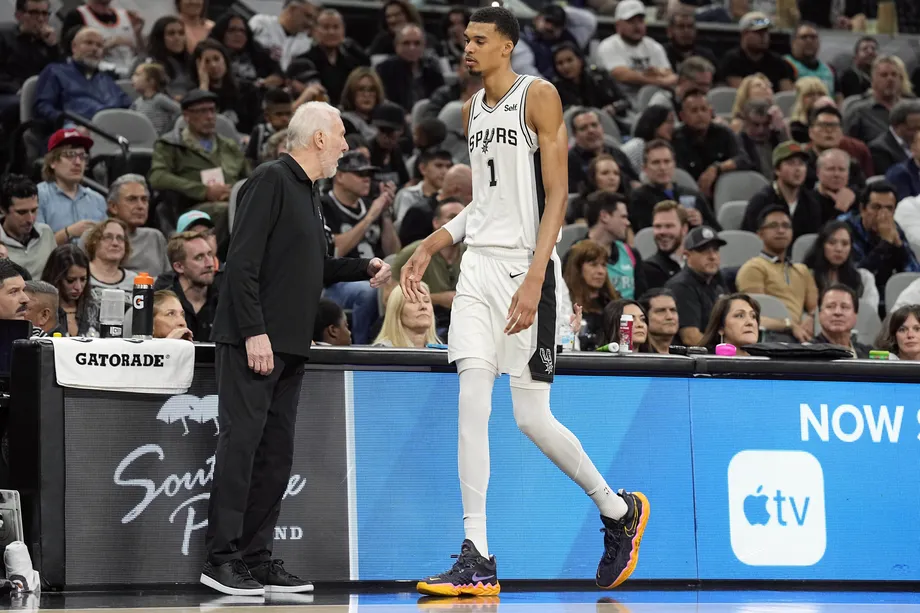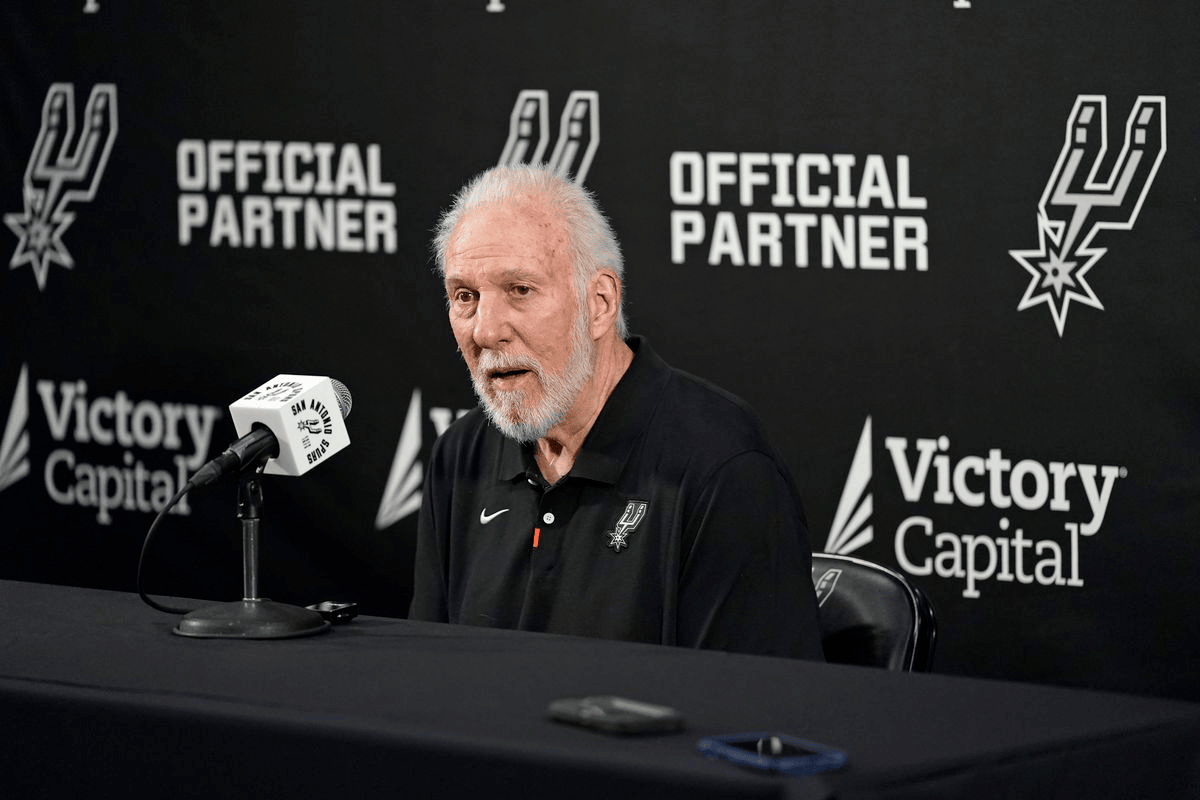
Youth and inexperience don’t explain why the Spurs’ can’t hold a lead

The PtR staff takes a look at why the Spurs can’t keep leads and offer their thoughts on the in-season tournmament.
The Spurs and losing big leads: young team problem or a sign of a bigger issue?
Marilyn Dubinski: Some of it is definitely a youth issue and learning how to build off leads instead of using them as a reason to relax, but blowing double-digit leads at home is something some teams don’t even do twice in a season. The fact that it has happened in six of the San Antonio Spurs’ home losses borders on inexcusable for any professional sports team no matter how young, and especially against a depleted team like Memphis. I’m usually a “trust the process” person and not one to question a Hall of Fame head coach, but it does start begging the question if something either needs to be changed up (like lineups or rotations), or if whatever he’s doing at halftime isn’t inspiring his team to come back out strong enough.
Mark Barrington: I think the NBA has always been a league where teams play harder the last few minutes of games. It used to be a lot worse, back in the 80s when teams would loaf for most of the games, and the more physical team would just take control in the last two minutes and close out the game by shutting down their opponent. It made the games less interesting, because there was no reason to watch until the final couple of possessions. The league is a little more balanced these days, so the good teams actually try for most of the game, but experienced teams still have another gear that they get into in the last two minutes of games, and the young Spurs haven’t found that gear yet. It takes a while for young kids to learn how to drive a manual transmission when they didn’t grow up with it. I think they’ll learn how to find that gear, but using that third pedal, the clutch pedal, takes a while to master. I think you’ll see a big difference later this year.
Bruno Passos: Youth absolutely plays a big part, but this team also isn’t built to hold onto leads. There are too few reliable playmakers to ensure quality looks on each offensive possession, and the experimentation with both Sochan as a ball-handler and Wembanyama as an offensive hub mean defenses can routinely get bailed out by a careless turnover or ill-advised shot. (If you’re going to draw up a set or play for this team to create, say, three good looks in a row in crunch time, do you like your options?) When that happens over the course of an entire period, they’re not good enough on defense to make up the difference or set the tone, and this three-point happy era of NBA basketball means teams can eat into leads that much faster.
Jesus Gomez: A little bit of both. You can see that they relax when they have leads and a lot of the guys in the rotation have simply not been in high-pressure situations. This team reminds me of the Dejounte Murray-led 2021/22 one that also struggled a lot late. But there are issues that go beyond youth too. There is no reliable shot creator on the roster so when things get more physical, the Spurs can’t just give someone the ball and let him work. The most reliable play they can run is arguably a Zach Collins’ post-up, which while not a terrible option, points to a bigger problem.
Who would you want to see take the last shot for the Spurs in a tied game or high-pressure situation?
Dubinski: Considering Victor Wembanyama has been his best in the fourth quarter and seems to have the clutch gene, he would be the right one in tied or down-by-one scenarios, but I would also equally trust Devin Vassell, who is better at creating his own shot. I would also trust him or one of the Spurs more reliable spot-up shooters if a three is needed. (Feels weird to say, but Sochan, anyone? He’s nailing spot up threes right now, and defenses are ignoring him because he’s not a known shooter and doesn’t take that many per game.)
Barrington: You want to have your best players take the most important shots, so it’s not a surprise that I want Victor Wembanyama or Devin Vassell with the ball in their hands when the game is on the line. Victor is a great passer, so he will get the rock to Zach if they’re more open than him, but I want him to be the finisher now, because that’s what he’s going to be doing for the rest of his career.
Passos: I want Wembanyama as the primary option, and then go from there. That may not mean him taking the final shot, but this team absolutely needs him getting reps making decisions based off what defenses give him. And if defenses sell out on denying the pass to him, that’s still going to lead to a better quality look for a teammate than anything that might be created otherwise. For as good as Vassell has been, creating advantages is not yet a reliable trait, and other players have similar shortcomings.
Gomez: It’s tricky because the rational answers seem to be Vassell or Wemby, but neither is comfortable creating their own shot. Neither is Keldon Johnson, really, but I think that he could be a better option if we are only focusing on the present. Since the Spurs should be thinking about the future, I’ll go with Wembanyama.

What are your thoughts on the in-season tournament?
Dubinski: I had no opinion of it when it was introduced and have remained pretty indifferent about it, perhaps because the Spurs are already out of it. That being said, I do get how it makes the early regular season a bit more exciting. I just hope the league takes a hint and tones down the alternate courts next season. There’s nothing wrong with having features that make the games unique and stand out from the rest, but whoever thought red-on-red, neon green, back-on-purple, bright blue, etc. would work well on TV screens probably isn’t too familiar with videography.
Barrington: Despite the irrelevance of San Antonio to the tournament, I think it was really fun. I thought that a lot of the courts were way too garish and a pain to look at, but having a different playing surface helped the league to promote the games as something special, otherwise they would just have seemed like normal early regular season games. I want the league to keep the special courts, but make them a little less distracting to look at.
I can’t wait until the knockout rounds, which will be really fun to watch, even though the Silver and Black won’t be on the court. It’s really a great idea to promote interest in the early season games, which have always bordered on irrelevance in the NBA, because good teams have routinely used the early part of the season to get into shape before the real season starts in the first round of the playoffs.
Passos: I dig it. I get some of the criticism around the league chasing more money through an unfamiliar and visually loud concept, but tournaments are fun, and I don’t think it takes as much as people think for players to buy in and compete a bit harder for them than they otherwise would this time of year. As for fans, claiming they’re having something artificial and (gasp) European shoved down their throats, many of you weren’t watching anyway, and you should be happy when you get a hyped up, highly competitive spectacle in early December. The courts are mostly hideous but even they provide a visual cue when you’re flipping channels on a random Tuesday or Friday that these games carry an alternate/parallel/greater meaning. Give it time and I think there will be more buzz and less groaning.
Gomez: I like it, but I’m used to these kinds of tournaments since I’ve watched the Spanish league version in the past. It just gives teams something else to fight for and I think the NBA is doing a good job of hyping it up without trying to make it into a more important thing than it really is. Group play has not been particularly exciting, especially for Spurs fans, but the knockout stages will be a lot of fun.

Leave a Reply